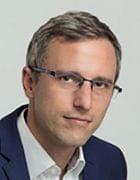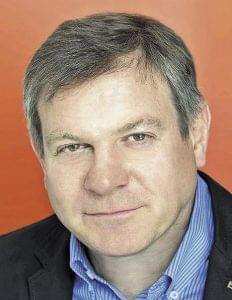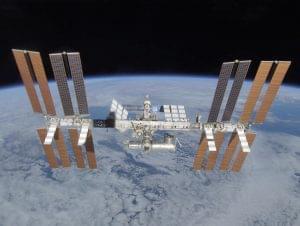Counting tanks and moon dust tiramisu

Botond Feledy
foreign policy expert
Foreign policy expert Botond Feledy was the guest of Chain Bridge Club and gave an online presentation. First he talked about the social context and the general loss of trust that was worsened by the breakout of the Covid-19 pandemic. He brought data from the Edelman Trust Barometer – this analyses 4 sectors in more than 30 countries – according to which people’s trust in the business, non-governmental, media and government sectors reduced further. What makes the situation even worse is the growing financial imbalance. During the pandemic typically those workers lost their jobs who are low-paid. In the USA those with an annual income below USD 25,000 were hit hard and now many families are without an income, in a country where healthcare services are very expensive. The situation isn’t good in Europe either, although here the social systems reacted to the crisis differently than in the USA. What is taking place now is a context collapse, where points of reference are disappearing.

Not only tanks, but also budgets for cyber security are counted
Sleeping Beauty has woken up
The transformation that is taking place is accelerated by digitalisation and climate change. In the 1990s many people behaved like they were the Sleeping Beauty, thinking that there will be a perfect democracy everywhere, citizens will vote online and all the knowledge will be accessible to everyone – they were being naïve. It took a while to wake up from this dream, but the terrorist attack on 11 September 2001, the economic recession in 2008, the 2016 US presidential elections, cyber wars and then Brexit finally took us to the Covid-19 crisis.
Visegrád meetings: Nothing more than tea parties

Ákos Kozák PhD
futurologist-sociologist
Futurist and sociologist Ákos Kozák, PhD was the host of the Chain Bridge Club meeting and his fist question to Mr Feledy was how geopolitical trends can change in the next 3-5 years. He said: in addition to counting tanks, we can also start to count how much money we have to spend on cyber security. In his view the cyber space and space will be the areas where lots money is going to be spent. The USA and China are the leading countries in the cyber war, but North Korea, Iran and Russia are also big players. As regards the armed forces, the USA is still the biggest power and the Russians and the European Union are lagging behind. Mr Feledy thinks that Central Europe only plays a role within the context of the EU. This region does have negotiation potential if the countries join forces, but the cooperation of the Visegrád Four is nothing but a tea party on the international stage. It would need institutions where members of parliament, the representatives of public administration and the non-governmental sector would meet regularly and work on achieving long-term goals. Plus the Visegrád countries often have differing opinions in key issues such as the threat Russia or China represent.
Dark corners of the internet and those sunny vineyards in Scotland…
Mr Feledy also talked about the how the dark web has become a market where business ventures are buying services if they want to beat competitors. The internet that we see is only a small fraction of the worldwide web, where everything is there from child pornography through drugs to ransom software. For many years now more money has been invested in cyber crime than in the global illegal drug trade.

The darknet has become a market, the tools sourced from which are also used in business competition
Ákos Kozák wanted to know what are the biggest threats food supply and the food industry. Botond Feledy reckons that the climate change generates a fight for new agricultural land, and a symbolic sign of this is that French winemakers are buying land for growing grapes in Scotland. Smart water management would be needed for sustainable food production, but in Iran or Syria the drought is so big because of the climate change that people have already started moving to the cities from the countryside. The problem is that there aren’t enough jobs for them there, so these people can easily be used for various political purposes.
Heading towards a revolution
Besides the cyber space and climate change, the third most important topic is energy. In this field the biggest leap forward will be related to energy storage. The process of developing hydrogen-based energy storage technology is making progress, and hydrogen energy storage is likely to incite a revolution that will restructure the energy market and reduce the level of being exposed to import for certain countries. Another challenge Mr Feledy mentioned was food safety: food production and supply will be done using digital technology and the access to this will be based on political decisions. Those who do have these technologies will be in a very good position in the future.
Moon dust tiramisu
The space has become a theatre of war once again. Mr Feledy is of the opinion that what matters today is how a country can establish orbital fuel filling stations that space missions can use, so that they don’t have to return to the Earth during or between missions. He thinks that the USA is going to spend a lot of money on its space programme in the future.

Conquering important areas of the space has started with and the USA seeks leadership therein
The foreign policy expert told that if food companies will want to make moon dust tiramisu tomorrow, the question arises: ‘Who will bring down the dust from the Moon and who will it belong to?’At the moment there are no practical rules for this, although Luxembourg has a law that says the entity that brings down something from space becomes its owner, in order to encourage space-related investment form the private sector. //
Related news
Hungarian apples are safe and of high quality
🎧 Hallgasd a cikket: Lejátszás Szünet Folytatás Leállítás Nyelv: Auto…
Read more >Related news
The Hungarian Food Book is 50 years old
🎧 Hallgasd a cikket: Lejátszás Szünet Folytatás Leállítás Nyelv: Auto…
Read more >ZEW: Economic expectations worsened in Germany and the euro area in February
🎧 Hallgasd a cikket: Lejátszás Szünet Folytatás Leállítás Nyelv: Auto…
Read more >NKFH: inspections focus on discount prices and customer deception
🎧 Hallgasd a cikket: Lejátszás Szünet Folytatás Leállítás Nyelv: Auto…
Read more >









